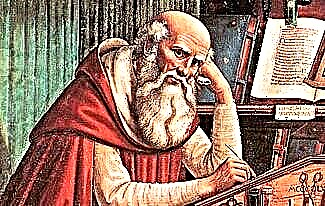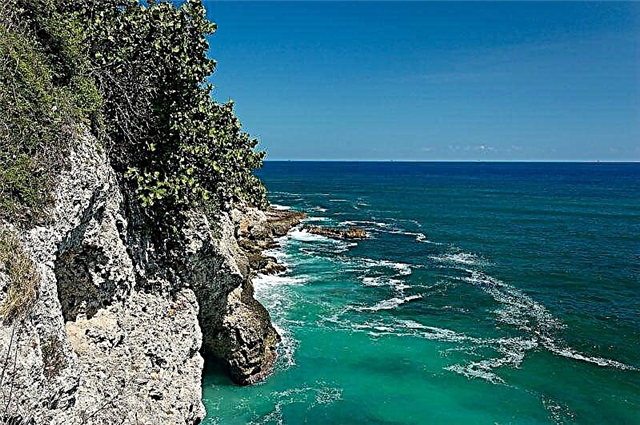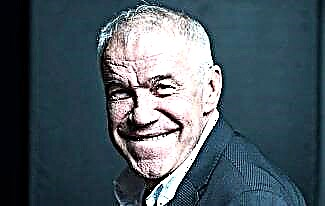Quintus Horace Flaccus, more often just Horace (65 - 8 BC) - Ancient Roman poet of the "golden age" of Roman literature. His work falls on the era of civil wars at the end of the republic and the first decades of the new regime of Octavian Augustus.
There are many interesting facts in the biography of Horace, which we will talk about in this article.
So, before you is a short biography of Quintus Horace Flacca.

Biography of Horace
Horace was born on December 8, 65 BC. e. in the Italian city of Venosa. His father spent part of his life in slavery, while possessing various talents that helped him find freedom and improve his financial situation.
Childhood and youth
Wanting to give his son a good education, his father left his estate and moved to Rome, where Horace began to study various sciences and perfectly mastered Greek. The poet himself spoke very warmly about his parent, who tried to provide him with everything he needed.
Obviously, after the death of his father, 19-year-old Horace continued his studies in Athens. There he was able to enter the intellectual elite and get acquainted with Greek philosophy and literature. An interesting fact is that the son of Cicero studied with him.

After the assassination of Julius Caesar, Brutus came to Athens looking for supporters of the republican system. Here he attended lectures at the Platonic Academy and promoted his ideas to students.
Horace, along with other young people, was called to serve in the rank of a military tribunal, which was very honorable for him in view of the fact that he was the son of a freedman. In fact, he became a legion officer.
After the defeat of Brutus' troops in 42 BC. Horace, along with the other warriors, left the position of the unit.
Then he changed his political views and accepted the amnesty offered to the followers of Brutus by Emperor Octavian.
Since the estate of Horace's father in Vesunia was confiscated by the state, he found himself in a very difficult financial situation. As a result, he decided to pursue poetry that could improve his financial and social situation. Soon he took up the post of scribe in the questura at the treasury and began writing poems.
Poetry
Horace's first collection of poetry was called Yambas, written in Latin. In subsequent years of his biography, he became the author of "Satyr", written in the form of a free dialogue.
Horace encouraged the reader to talk about human nature and problems in society, leaving him the right to draw conclusions. He supported his thoughts with jokes and examples that were understandable to ordinary people.
The poet avoided political issues, increasingly touching upon philosophical topics. After the publication of the first collections in 39-38. BC Horace ended up in high Roman society, where Virgil helped him.
Once at the court of the emperor, the writer showed prudence and balance in his views, trying not to stand out from others. His patron was Gaius Cilny Maecenas, who was one of Octavian's close associates.

Horace closely followed the reforms of Augustus, but at the same time did not descend to the level of "court flatterer". If you believe Suetonius, the emperor offered the poet to become his secretary, but received a polite refusal from that.
Despite the benefits promised Horace, he did not want this position. In particular, he feared that by becoming the personal secretary of the ruler, he would lose his independence, which he greatly valued. By the time of his biography, he already had enough means for life and a high position in society.
Horace himself focused on the fact that his relationship with the Maecenas is based only on mutual respect and friendship. That is, he emphasized that he was not in the power of the Maecenas, but was only his friend. It is important to note that he never abused his friendship with a patron.
According to biographers, Horace did not strive for luxury and fame, preferring this quiet life in the countryside. Nevertheless, thanks to the presence of influential patrons, he often received expensive gifts and became the owner of a famous estate in the Sabinsky Mountains.
According to a number of sources, Quintus Horace Flaccus was with Maecenas in one of Octavian's naval campaigns, as well as in the battle at Cape Actium. Over time, he published his famous "Songs" ("Odes"), written in a lyrical style. They covered a wide variety of topics, including ethics, patriotism, love, justice, etc.
In odes, Horace repeatedly extolled Augustus, because in some moments he was in solidarity with his political course, and also understood that his carefree life largely depended on the health and mood of the emperor.
Although the "Songs" of Horace were very coolly received by his contemporaries, they outlived their author for many centuries and became an inspiration for Russian poets. It is curious that such personalities as Mikhail Lomonosov, Gabriel Derzhavin and Afanasy Fet were engaged in their translation.

In the early 20s BC. Horace began to lose interest in the odic genre. He presented his new book "Messages", consisting of 3 letters and dedicated to friends.
Due to the fact that the works of Horace were very popular both in antiquity and in modern times, all of his works have survived to this day. Few people know the fact that after the invention of printing, no ancient author was published as many times as Horace.
Personal life
Over the years of his personal biography, Horace never married, and also did not leave behind offspring. Contemporaries described his portrait as follows: "short, pot-bellied, bald."
Nevertheless, the man often indulged in carnal pleasures with various girls. His muses were the Thracian Chloe and Barina, distinguished by their attractiveness and cunning, whom he called his last love.
Biographers claim that there were many mirrors and erotic images in his bedroom so that the poet could watch the nude figures everywhere.
Death
Horace died on November 27, 8 BC. at the age of 56. The cause of his death was an unknown illness that caught him suddenly. He transferred all his property to Octavian, who insisted that from now on in all educational institutions the poet's work was taught.
Horace Photos
















